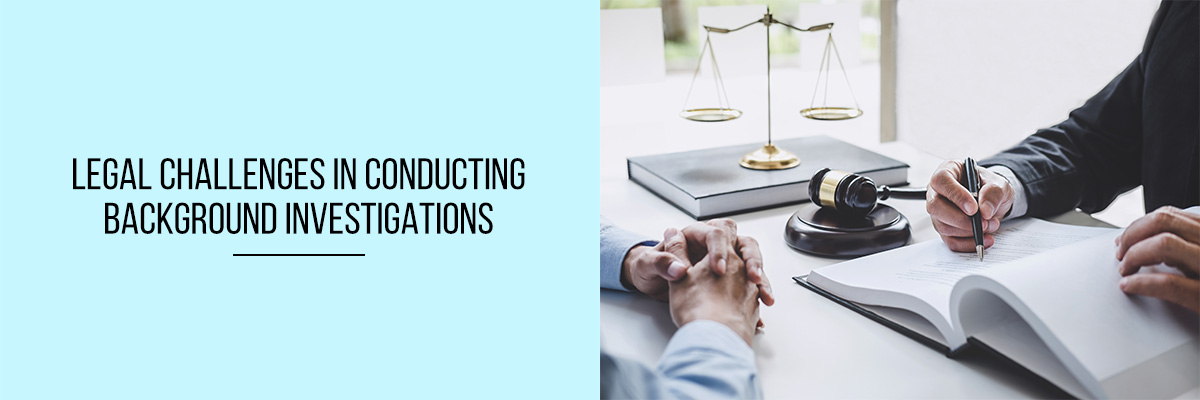Organizations run background investigations on prospective employees to gain the confidence to hire them. These investigations are run for safety and liability reasons. As background checks are now regarded as a fundamental step in hiring new employees, it also plays a significant role in employers’ decisions regarding whether they would hire the employee.



In addition to resources and expenses to run these background investigations, organizations have to be aware of its legal aspects. As every state imposes different laws on background checks, it’s important for employers to know their bit of federal and state laws before running any investigations.
The Fair Credit Reporting Act (FCRA) sets restrictions on these investigations. Employers are required to send a separate document to get employees’ consent for a background check before proceeding. This applies only if employers seek third-party agencies for these investigations. However, if employers need to run inquiries on their own, no legal authorization from employees is required.
It is very important for employers to stay updated and be aware of the new criminal background check regulations if they intend to run one. Any misstep or negligence of laws imposed might lead to lawsuit claims and further legal ramifications.
Legal Challenges in conducting Background investigations
Employers and organizations have to bear and keep many laws in mind and obligate accordingly while running background investigations. There are many serious legal challenges to face in doing background checks, here are some:
1. Legal Consent
For any employer to run background checks or also commonly known as employee screening, they require written approval from the employee. Employers must issue a separate document from other application documents, seeking permission to run background checks with specific points of different aspects. The document must indicate that if needed, employees could also request a copy of the report.
2. Pre-adverse action disclosure
A lengthy process has to be completed, in case an employer decides not to hire a candidate based on the background investigation reports. Under federal and state law, the employer must inform employees of their decision along with the document “Pre-adverse action disclosure”. This could include a copy of the investigative reports with details of the third-party agency hired by the employer. According to the Fair Credit Reporting Act (FCRA), an attached document of employees’ rights must be provided, along with their rights to dispute the report.
3. Discrimination
Many laws have been imposed considering discrimination in process of background investigations and hiring employees. By law, employers must ensure to have a fair investigation for everyone applying for the same job profile without any discrimination of race, religion, national origin, sex, color, disability, or any other protected category.
If a particular applicant’s history shown in the report is a red flag for the hiring, it should be the same for all applicants despite their race. Investigations must comply with Employment Equal Opportunity (EEO) laws and not discriminate.
4. Additional requirements
Depending on your state laws, different states have a background investigation that imposes additional requirements for obtaining consumer credit reports and retaining reports. This also applies to checking criminal records and immigration information.
Under the Immigration Reform and Control Act of 1986 (IRCA), aside from undocumented immigrants, the law prohibits discrimination against citizenship status or national origin.
Final Words
To avoid liability and time-consuming legal ramifications that are associated with conducting background checks on applicants, employers should be aware of all the laws imposed.


